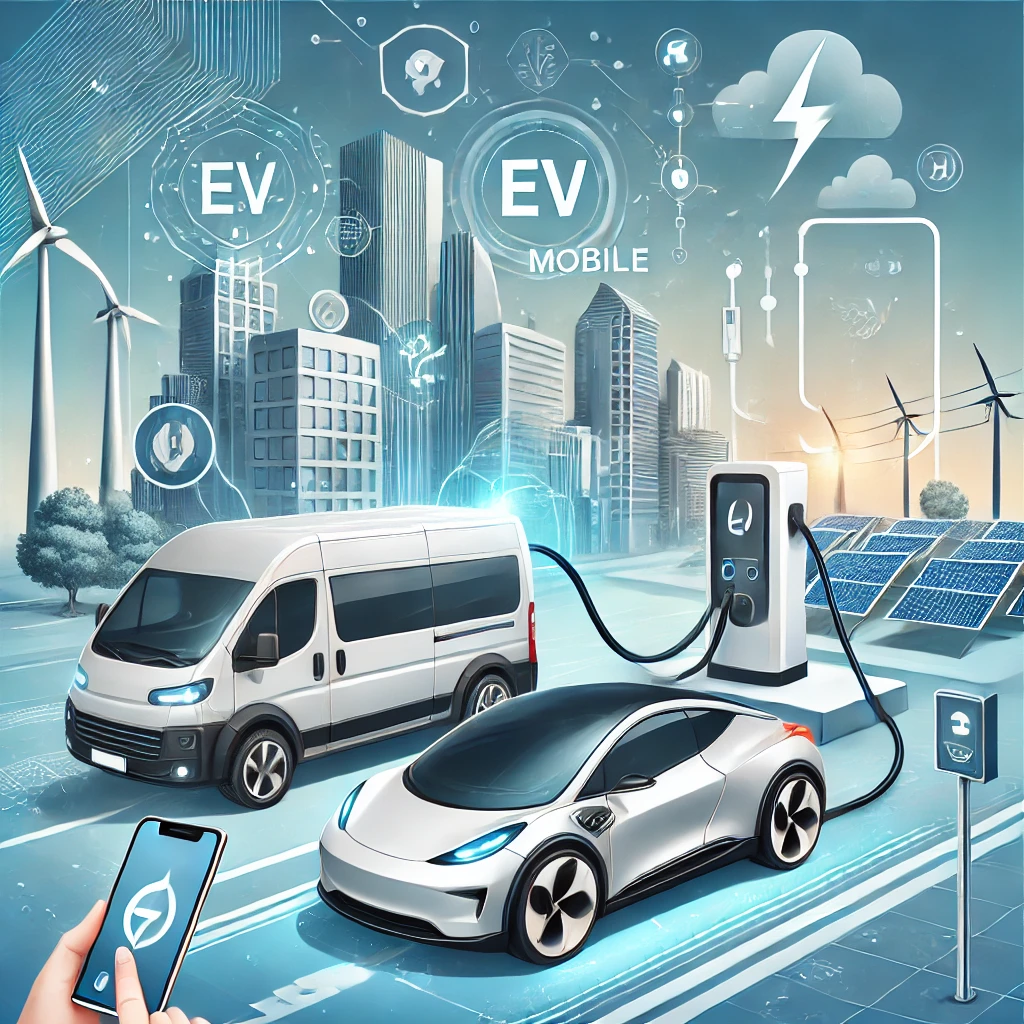The global move towards electric vehicles (EVs) has led to significant improvements in technology, infrastructure, and services. Among these, mobile EV charging services stand out as a remarkable innovation. They cater to EV owners by providing on-demand charging, addressing range anxiety, and ensuring a smooth driving experience. Let’s explore what mobile EV charging services are, how they operate, and their influence on the electric mobility ecosystem.
What is a Mobile EV Charging Service?
Mobile EV charging services offer portable, on-demand power solutions for electric vehicles. These services use specially designed vehicles, portable charging stations, or battery packs to deliver power directly to EVs, no matter where they are.
Key Features
- Flexibility: Charge your EV at home, work, or even in remote places.
- Convenience: No need to look for nearby charging stations or wait in line.
- Reliability: Services are often available 24/7, addressing emergencies like low batteries.
How it Works
- Request: Users request a mobile charging service through an app or customer support.
- Dispatch: A charging vehicle or technician is sent to the EV’s location.
- Charging: The EV is charged on-site using portable chargers or integrated units.
- Payment: Users pay based on energy provided, distance traveled, or a flat fee.
Types of Mobile EV Charging Services
Vehicle-Based Charging
Specialized vehicles with charging units travel to the EV’s location. These vehicles may have generators or high-capacity batteries to provide power.
Portable Charging Units
Technicians bring compact, standalone chargers to the site. These units are often powered by external batteries or generators.
Swappable Battery Solutions
Some services offer battery packs that can be swapped, allowing users to replace a depleted battery with a fully charged one instantly.
Renewable Energy Chargers
Mobile services powered by renewable energy sources like solar or wind enhance sustainability further.
Benefits of Mobile EV Charging Services
Convenience
Mobile charging removes the need to find and travel to a stationary charging station. This is particularly useful in areas with limited infrastructure.
Emergency Support
Mobile services provide immediate help to EV owners stranded with a low battery, preventing costly towing fees.
Scalability
Mobile chargers can fill gaps in infrastructure, especially in rural or remote areas where building permanent stations is expensive.
Flexibility for Fleet Operators
Businesses with EV fleets benefit from mobile charging to keep operations running smoothly without downtime.
Sustainability
Using renewable energy sources, mobile EV chargers can reduce the carbon footprint of the charging process.
Use Cases for Mobile EV Charging
Urban Areas
Mobile services meet the high demand for charging in cities where fixed infrastructure may be overburdened.
Remote Locations
Travelers and adventurers benefit from mobile chargers in areas far from conventional charging stations.
Events
Large events can use mobile chargers to cater to EV-driving attendees.
Roadside Assistance
Emergency charging ensures that EV owners don’t get stranded due to an empty battery.
Challenges and Limitations
While mobile EV charging services are promising, they also face some challenges:
Cost
Operating and maintaining mobile charging units can be expensive, which may result in higher costs for users.
Energy Efficiency
Using portable generators, especially diesel-powered ones, can reduce the environmental benefits of EVs.
Availability
Mobile charging services are not yet widespread and may not be available in all regions.
Battery Capacity
Mobile chargers might not completely recharge large EV batteries but can provide enough power to get to the nearest charging station.
6. The Technology Behind Mobile EV Charging
A. Portable Battery Packs
Portable charging units with high-capacity battery systems can deliver power without needing a direct grid connection.
B. Fast Charging
Many mobile chargers feature fast-charging technology, allowing for a significant amount of charge in a short period.
C. IoT Integration
Applications and platforms enable real-time tracking of mobile charging vehicles, scheduling, and payment, thus improving the user experience.
D. Renewable Energy Integration
Solar panels and wind turbines are increasingly being utilized to power mobile charging units in an eco-friendly manner.
7. Key Players in Mobile EV Charging
Several companies are leading the mobile EV charging market:
- SparkCharge: Offers mobile EV charging solutions with a portable system called the Roadie.
- EV Safe Charge: Provides mobile charging services for fleets, events, and individual users.
- ChargedUp: A European company focusing on urban mobile charging solutions.
- GoPlug: Delivers app-based on-demand charging services.
8. The Future of Mobile EV Charging
A. Expansion of Services
As more people adopt EVs, mobile charging services will grow, especially in areas with limited infrastructure.
B. Integration with Autonomous Vehicles
Future self-driving vehicles might use mobile charging units to recharge without human intervention.
C. Improved Battery Technology
Better battery capacity and efficiency will make mobile chargers more effective and greener.
D. Policy Support
Governments might offer incentives for mobile charging solutions to fill infrastructure gaps and support EV adoption.
9. Tips for Using Mobile EV Charging Services
- Plan Ahead: Use mobile charging as a backup, not the main charging method.
- Choose Reliable Providers: Select established companies with positive customer reviews.
- Check Costs: Be aware of pricing structures, including service fees and energy costs.
- Explore Apps: Many providers offer user-friendly apps for scheduling and tracking.
Conclusion
Mobile EV charging services are a key innovation in electric mobility. By offering on-demand, flexible, and sustainable charging options, they address many challenges associated with EV adoption. Though the technology is still developing, it has great potential to complement traditional charging infrastructure and improve the EV experience. As the world moves toward electrification, mobile EV charging services will be crucial in ensuring convenience and accessibility in the future of transportation.



